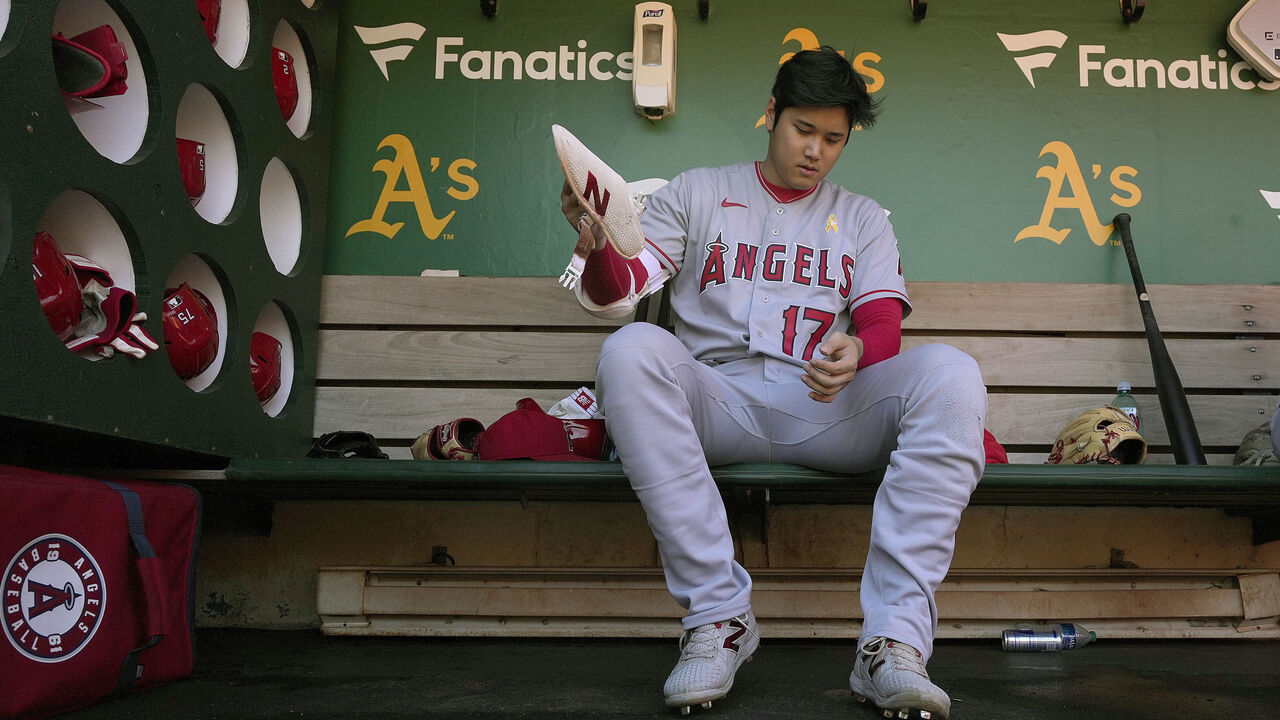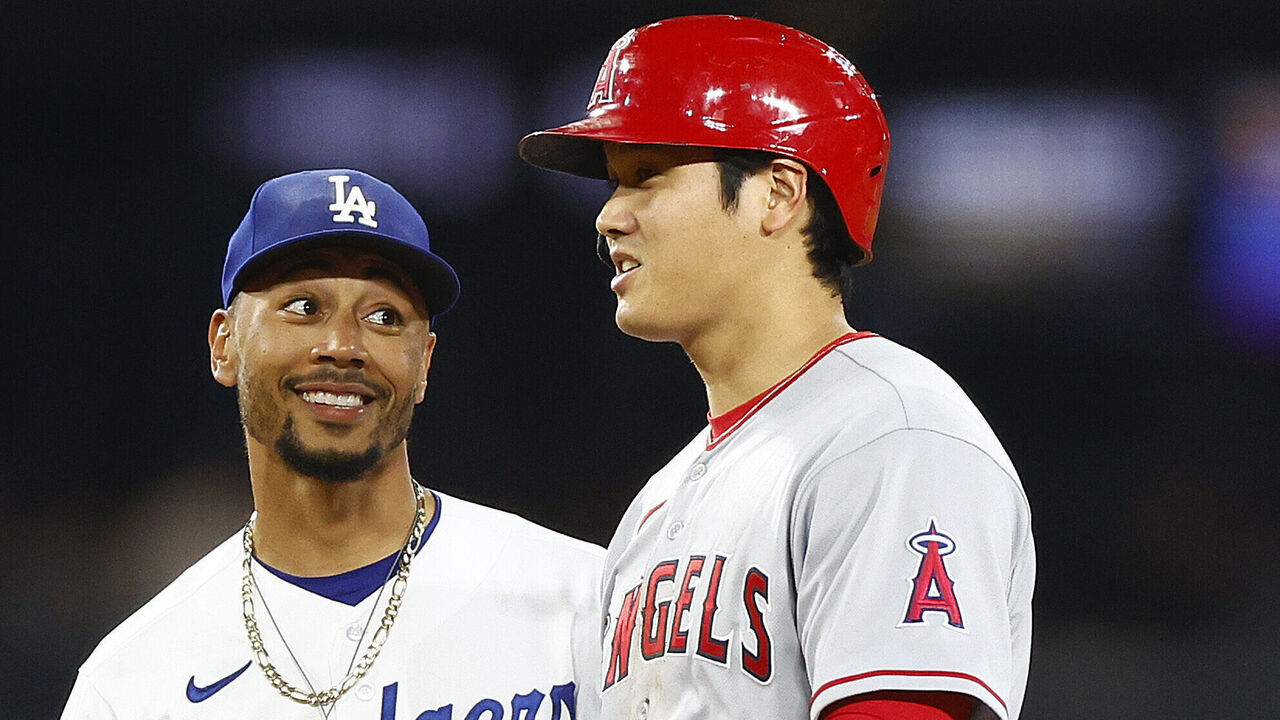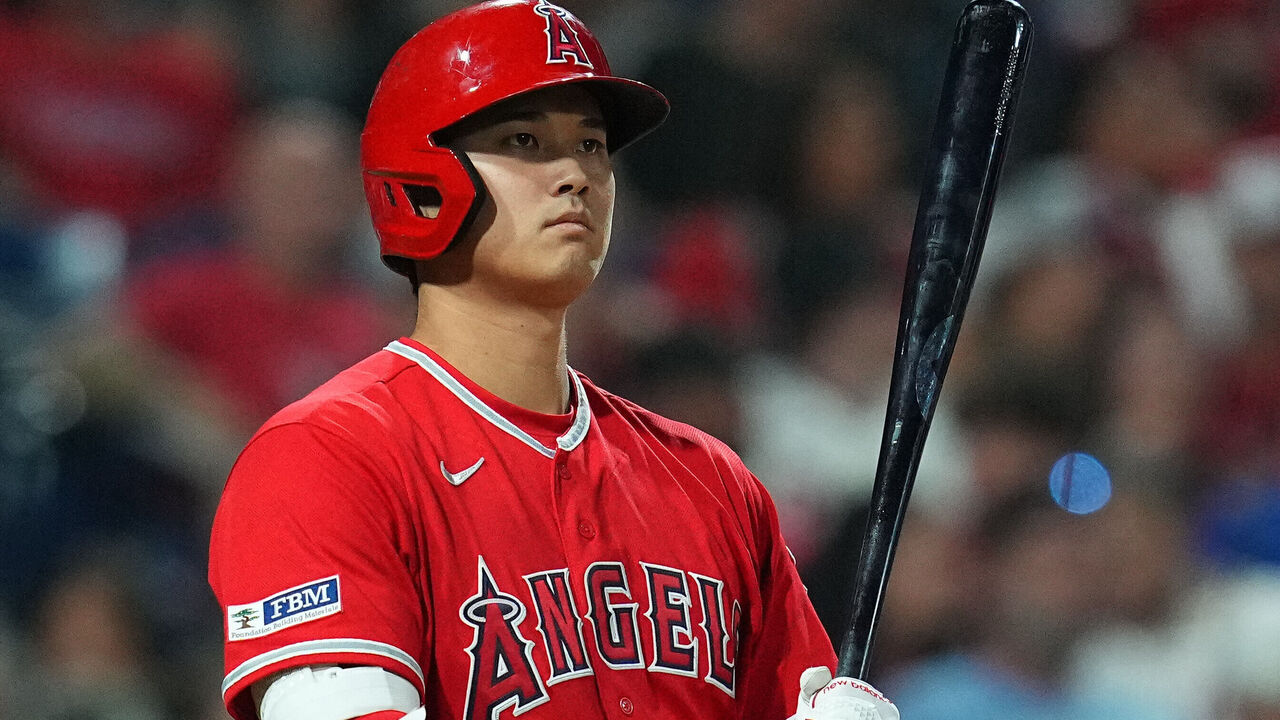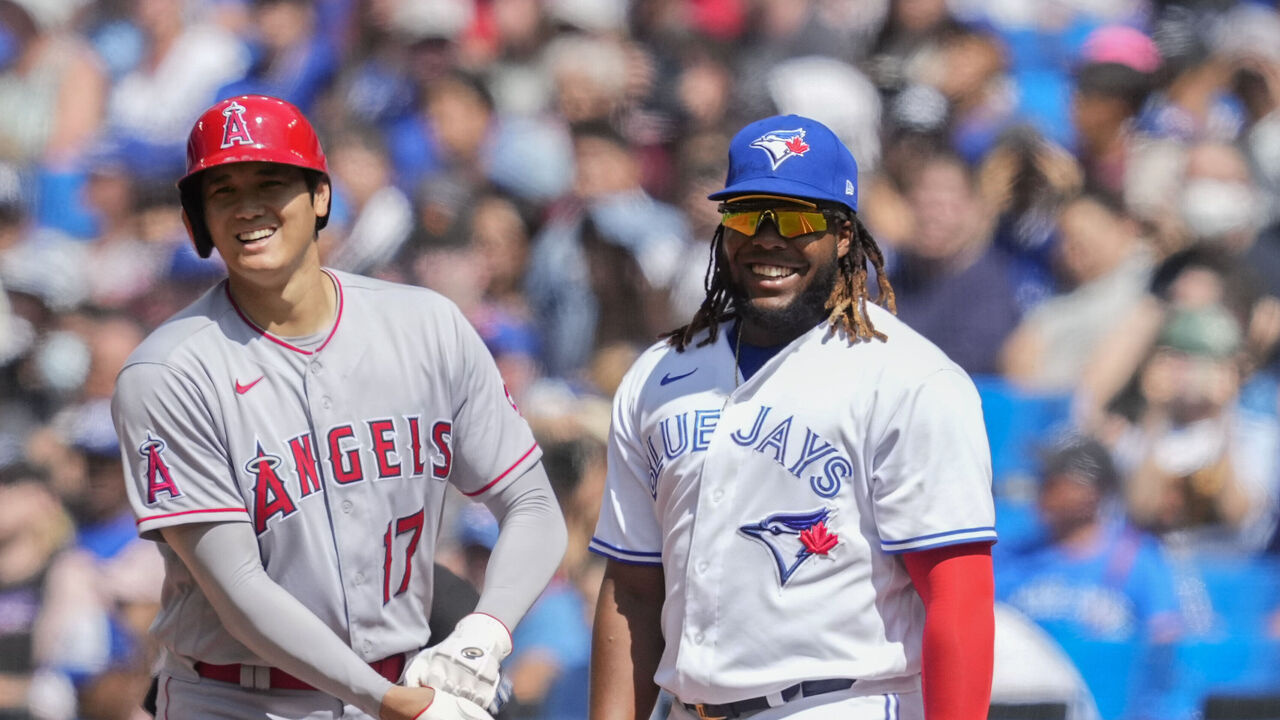From coast to coast, Ohtani's decision shakes the baseball world
Shohei Ohtani, the most sought-after free agent in major-league history, again ran a secretive free-agency courtship.
His first go-around ended with a press release Dec. 8. 2017, and his second concluded nearly six years to the date, on Saturday afternoon, with a decision revealed on his Instagram account. It ended as many had suspected it would, with the player agreeing to a deal with the Los Angeles Dodgers.
The betting markets had pegged the Dodgers as a heavy favorite from the beginning. Ohtani favored geography in his first free-agency experience, signing with the Los Angeles Angels, and he did so again, only moving across town to join a richer and more competent organization.
The crowd was right on this one even after errant reports had Ohtani on a plane to Toronto on Friday afternoon only to find Canadian businessman Robert Herjavec stepping from it to the Pearson International Airport tarmac. One report earlier in the day cited sources that claimed Ohtani had agreed to a deal with the Toronto Blue Jays. It was a brutal 24-hour period for Blue Jays fans, as the club must now pivot to a much less exciting Plan B.
What's clear is the decision will have far-reaching consequences from coast to coast.

The reigning and two-time AL MVP could have made a more immediate on-field impact in the AL East, which is expected to be the most competitive division in the sport. Ohtani could swing division odds there, while the Dodgers won the NL West by 16 games last season without Ohtani and again reached 100 wins. If the Dodgers needed anything in the near term, it was pitching, and Ohtani won't be able to do that until 2025 as he recovers from elbow surgery. But a lineup core of Ohtani, Freddie Freeman, and Mookie Betts is a terrifying prospect for opponents. If Ohtani can return to his former self on the mound, he can be a centerpiece of an iconic, large-market club aiming for more World Series appearances.
It will be interesting to see what the game's most consequential player means for MLB, the industry, and for growing the sport. Ohtani could have ample opportunities on the October stage, which would be great for baseball. For too long, Mike Trout, who had been the game's best player, was absent from meaningful playoff games. On the other hand, one could argue MLB would be better off with a once-in-a-century star playing in an eastern time zone market where 50% of U.S. and Canadian citizens reside, where more people would have more often enjoyed following Ohtani's exploits live and in a more competitive division.
The deal also, again, highlights the dramatic divide between club spending.
The Pittsburgh Pirates have spent $718 million on Opening Day payroll over the last 10 years.
Ohtani's deal guarantees him $700 million over 10 years.
Yes, $700 million, or $951 million Canadian.
Those terms were the surprising aspect of the contract. While a significant portion of those dollars will be deferred, according to reporter Robert Murray, the deal far exceeds public predictions, which had generally ranged from the upper-$400-million level to the lower-$500-million range.
The agreement smashes the previous record for guaranteed dollars, which was held by his former teammate, Mike Trout ($426.5 million). They are the only two players to reach $400 million in guarantees in a single deal.
Trout's contract, though, was a club extension.
The largest free-agent contracts for a hitter (Aaron Judge: nine years, $360 million) and pitcher (Gerrit Cole: nine years. $324 million) were both awarded by the New York Yankees. Combined, they fall short of Ohtani's deal.
And that's fascinating, as there are no guarantees Ohtani will be a high-volume workhorse pitcher over the course of this deal.
The winner of the Ohtani sweepstakes had to believe in him as a pitcher.
Ohtani will not pitch in 2024 due to recovery from elbow surgery, his second major procedure since leaving Japan. There is doubt about just how much he will be able to pitch moving forward.
While he's reached 130 innings or more in six of the 10 combined seasons he's played between the NPB and MLB, there's a limit to the amount of drilling and reconstruction that can be done to a throwing elbow's bones and ligaments.
An MLB executive who spoke with theScore said he would have modeled an Ohtani deal like this: Aaron Judge's contract plus a heavily incentivized pitching deal, something like a two- or three-year deal with plenty of incentives folded into a larger deal. Then there would be a consideration of his marketing value.

But the Dodgers are paying him as if they have few concerns about his ability to return as a top-of-the-rotation arm next year and avoid a future debilitating injury.
The history of pitchers who have had two Tommy John surgeries is not great. Ohtani has had a full TJS reconstruction and a hybrid surgery this fall.
And he's not just a pitcher. We don't know the long-term viability of a two-way player.
Ohtani is the closest thing to George Herman Ruth since Ruth last played, only the Babe never sustained a dual role. Ruth was only a high-volume, two-way player for one season, recording more than 500 plate appearances and 130 innings pitched just once, in 1919. Ohtani's already exceeded those thresholds in three seasons. Ruth himself doubted the longevity of such a role.
And from a valuation standpoint, even on the hitting side, there's a case to be made that Ohtani is not as valuable as Judge in regard to his position player skills.

While a year older than Ohtani, 29, at the time of signing a year ago, Judge out-WARed Ohtani as a position player 22.3 to 14.3 in his last three seasons prior to free agency.
In his three years leading into free agency, Ohtani slashed .277/.379/.484 with a 161 OPS+, though he saved his best for last, leading the AL in on-base (.412), slugging (.654) and OPS+ (184) this past season.
In Judge's last three years leading into free agency, plus the shortened COVID year, he slashed .290/.392/.594 with a 168 OPS+. (Playing DH does hurt WAR figures, and Ohtani may play more outfield down the road.)
The Dodgers probably aren't counting on Ohtani to be Judge and Cole combined into one roster spot, but rather to bring ancillary revenue due to his international reach and marketing appeal.
For instance, the Los Angeles Times' Mike DiGiovanna reports that the Angels "netted $10 million to $20 million a year in Ohtani-related advertising, promotions and marketing revenue," and added that one high-ranking MLB exec believes the Dodgers could double that as a stronger team and brand.
Perhaps he can recruit, too.
Japan's best pitcher, Roki Sasaki, reportedly asked to be posted by his club Saturday, though that request is unlikely to be accepted.
While they have landed arguably the most talented player of all time, there are some potential issues, outside of Ohtani's long-term health, for the Dodgers.
No front office is bestowed with limitless resources, and the Dodgers have far greater questions in their rotation. For as great as Ohtani is, at the moment, most of his value is tied to his bat.
And while the Dodgers are still enjoying a 25-year, $8.35-billion local TV rights deal signed with SportsNet LA in 2013 - that's $334 million per year from local TV - just down I-5 in San Diego, the Padres saw their $1.2-billion local deal evaporate last year due to the RSN collapse. The Padres have no local media guarantees at the moment.
The city of Los Angeles is not immune from cord-cutting. The same issues that are plaguing the Diamond Sports Group's RSNs are hitting Charter, SportsNet's parent company, which reported a loss of 320,000 cable customers in the third quarter - beating Wall Street analysts' expectations (230,000).
We've seen numerous teams cite RSN issues as affecting team-building this offseason, and the Dodgers have less financial flexibility moving forward.
But perhaps those are concerns for another season. Right now they are celebrating Othani, even if they weren't the team most incentivized to land him.

The Blue Jays are the biggest losers in the Ohtani sweepstakes. And Toronto, arguably, would have benefited more, both from a business and on-field perspective.
By all accounts, the Blue Jays made a serious run at Ohtani - offering a deal in excess of $500 million, according to Sportnet's Ben Nicholson-Smith, and were reportedly among his finalists. The courtship was serious enough that Ohtani traveled to check out the club's facility in Dunedin, Florida, earlier in the week.
The Blue Jays are in a unique situation as one of two MLB clubs owned by a publicly traded company (the Atlanta Braves are the other), and it's not just any company, as Rogers Communications owns not just the team, but its TV distribution. With a $24-billion market cap and expiring NHL rights, what better time to make a serious run at a historic free agent and pivot to becoming a baseball-first entertainment company?
The Blue Jays play in a diverse, major city, and enjoy the largest "local" cable market in MLB. It's an entire country. The Blue Jays averaged 896,000 live viewers for local games in 2022, No. 1 in the sport, compared to 96,000 as the industry average, according to ratings data obtained by theScore.
And if star power is more important as direct-to-consumer models emerge, Ohtani was the perfect target.
On the field, the Blue Jays need a left-handed bat more than about any team.
Recall two seasons ago, they were the most right-handed heavy lineup in the majors. And even after adding Daulton Varsho and free agent Kevin Kiermaier last year, the Blue Jays still had the second-fewest left-handed plate appearances versus right-handed pitchers. The Blue Jays' home run power was down in the newly renovated Rogers Centre, too.
They are not the only losers in the Ohtani sweepstakes, however.
The Chicago Cubs and Texas Rangers were reportedly interested. The San Francisco Giants fell just short of Judge and Carlos Correa last year and now must watch as their division rival signs the game's greatest player.
There's fallout for the Angels, too. Because of their inability to build a competent organization around Ohtani and Trout, and because of their decision to not part with Ohtani at the trade deadline chasing unlikely playoff chances, they will be compensated with just a second-round pick for his move across town.
The ramifications will be felt for years to come, from Los Angeles to Toronto, as the game's greatest show continues on at an upgraded home.
Travis Sawchik is theScore's senior baseball writer.